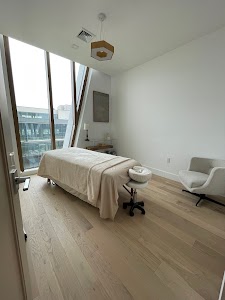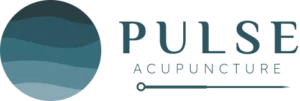Acupuncture for Pinched Nerve
Acupuncture for Pinched Nerve
What is a Pinched Nerve?

A pinched nerve occurs when too much pressure is applied to a nerve by surrounding tissues, such as muscles, bones, or tendons. This pressure disrupts the nerve’s function, leading to pain, numbness, or weakness in the affected area. Pinched nerve relief often requires reducing the pressure and inflammation around the nerve to restore normal function. Common areas for pinched nerves include the neck, back, and limbs. These issues can arise from repetitive movements, poor posture, or injuries. A pinched nerve can cause tingling sensations or a “pins and needles” feeling that can be bothersome during daily activities.
Without proper treatment, a pinched nerve can worsen, leading to chronic pain and even permanent nerve damage. Early intervention is key to preventing long-term complications, as prolonged pressure on a nerve can lead to scarring and nerve degeneration. Treatments may include rest, physical therapy, or alternative therapies like acupuncture. Acupuncture for pinched nerve can help reduce inflammation and improve blood flow, offering a natural solution for those seeking pinched nerve relief.
By fixing the root cause of the pressure on the nerve, acupuncture can provide lasting relief and support the body’s recovery process, making it an effective option for those suffering from this condition. Additionally, maintaining good posture, taking breaks during repetitive tasks, and using ergonomic support can help prevent pinched nerves from developing. Understanding what a pinched nerve is and recognizing the early signs can lead to better outcomes and a quicker return to normal activities.
What Causes a Pinched Nerve?
Pinched nerve causes can vary, but they generally involve pressure or compression on a nerve due to surrounding tissues. Repetitive movements or maintaining a specific position for extended periods, such as sitting or typing, can lead to a pinched nerve. Injury or trauma, such as a herniated disc in the spine, is another common cause. This occurs when the disc’s inner material presses against a nearby nerve, leading to pain and discomfort. Inflammation or swelling from conditions like arthritis can also put pressure on nearby nerves, leading to pinched nerve symptoms.
Obesity can contribute to nerve compression, as excess weight increases pressure on the joints and spinal discs. Pregnancy may also result in a pinched nerve due to changes in weight distribution and posture. The added pressure on the lower back and hips during pregnancy can irritate nearby nerves. The aging process can add up to degenerative conditions, such as spinal stenosis, which narrows the spaces in the spine and may pinch nerves.
Identifying causes is important for effective treatment, as helping with the underlying factors can help reduce symptoms. Alternative therapies like acupuncture can play a role in managing these causes by reducing inflammation and muscle tension, allowing the nerve to recover naturally and promoting long-term relief. Early intervention and lifestyle changes, such as maintaining a healthy weight and improving posture, can help prevent further issues, offering a proactive approach to nerve health.
Pinched Nerve Symptoms
Pinched nerve symptoms can impact one’s mobility and comfort, varying based on the location of the nerve compression. A pinched nerve in the back often results in sharp pain, radiating through the lower back and into the legs, which can make walking or sitting difficult. People with this condition may find that their pain increases with prolonged standing or sudden movements, adding to the challenge of managing daily activities. Symptoms of pinched nerves in the lower back can also include numbness, tingling, or a burning sensation, often worsening with specific movements or positions that place additional pressure on the affected area.
A pinched nerve in hip can cause discomfort that radiates through the buttocks and down the legs, sometimes leading to weakness in the affected limb. This can make activities like walking, climbing stairs, or even sitting for long periods particularly uncomfortable. Individuals may notice a reduction in their range of motion, further limiting their ability to move freely.
When it comes to the pinched nerve in neck, people may experience neck pain that extends into the shoulders and arms. Symptoms of pinched nerve in neck can include a loss of grip strength or a sensation of pins and needles in the hands, which can affect tasks that require fine motor skills, such as writing or using a keyboard. The discomfort can also make it difficult to find a comfortable sleeping position, leading to disrupted sleep.
A pinched nerve in arm can lead to difficulty with arm movement, accompanied by pain, tingling, or weakness. This may result in a decreased ability to lift or carry objects, impacting everyday activities like carrying groceries or lifting a child. The symptoms may be persistent or come and go, depending on how much pressure is placed on the affected nerve.
Common symptoms of a pinched nerve include:
- Pain: sharp, aching, or burning sensations in the affected area, which may radiate to nearby regions.
- Numbness: loss of sensation or a feeling of reduced sensitivity, particularly in the hands, feet, or limbs.
- Tingling or “Pins and Needles”: a prickling sensation, similar to the feeling when a limb falls asleep.
- Weakness: reduced strength in the affected muscles, making it difficult to hold objects or perform physical tasks.
- Muscle Spasms: involuntary muscle contractions or cramps that can increase discomfort.
- Decreased Range of Motion: difficulty moving the neck, back, or affected limb without pain.
Early recognition of these symptoms is crucial, as prompt treatment can prevent further complications and improve recovery outcomes. Acupuncture can help address these symptoms by reducing inflammation and muscle tension around the affected area, offering relief and improving quality of life.
If you are worried about Pinched Nerve, make an appointment with us!
Can Acupuncture Help a Pinched Nerve?

Acupuncture has been shown to be beneficial in managing the pain and discomfort associated with pinched nerves. By targeting specific points, acupuncture for pinched nerve in neck and other areas can reduce inflammation and muscle tension, providing a natural method for easing nerve compression. This practice helps improve blood flow to the affected region, which can speed up healing and relieve symptoms such as numbness and tingling. Acupuncture can be particularly effective for people who experience nerve pain that disrupts their daily activities, such as working, sleeping, or exercising.
The treatment stimulates the body’s natural pain-relief mechanisms, helping to alleviate discomfort without relying on medication. This makes it an attractive option for those looking for a non-invasive approach to managing their symptoms. Many patients with pinched nerves report significant improvements in their pain levels and mobility after a series of acupuncture sessions. Acupuncture’s ability to relax tight muscles and reduce the inflammation that contributes to nerve compression makes it a valuable addition to traditional therapies like physical therapy and stretching exercises.
Acupuncture can help patients regain a better range of motion and decrease the frequency and intensity of their symptoms. It is often recommended as part of a treatment plan, giving a safe and effective method for managing pinched nerve pain, and offering hope for long-term relief.
Benefits of Acupuncture for Pinched Nerves
Acupuncture has several benefits for those suffering from pinched nerves, providing a natural and drug-free method to manage pain and discomfort. One of the primary advantages of acupuncture and pinched nerve treatment is its ability to reduce inflammation, which is a common cause of nerve compression. Acupuncture helps relax tight muscles around the affected nerve, easing pressure and allowing the nerve to heal. This approach can significantly improve mobility, making daily activities less painful and more manageable for those with chronic nerve pain.
Another benefit is that acupuncture can stimulate the release of endorphins, the body’s natural painkillers, providing relief from chronic pain. These endorphins help in reducing the intensity of pain signals sent to the brain, offering a natural way to manage discomfort. Patients often find that acupuncture sessions help them feel more relaxed and reduce their overall stress levels, which can further aid in recovery by promoting better sleep and a positive mood.
Additionally, acupuncture helps improve blood circulation to the affected area, promoting tissue healing and reducing swelling. This enhanced circulation is vital for bringing oxygen and nutrients to the injured area, supporting the body’s healing process. This makes it a valuable addition to treatments like physical therapy, especially for those people who look to avoid long-term medication use. For people who prefer a holistic approach to managing their symptoms, acupuncture provides a safe and effective option that can be tailored to their specific needs, making it a popular choice for many.
How Effective is Acupuncture for Nerve Damage?
Acupuncture has shown promise as a supportive therapy for various types of nerve damage, including pinched nerve treatment. The practice of acupuncture is thought to promote neuroplasticity, encouraging the body to repair damaged nerve pathways over time. While acupuncture is not a quick fix for severe nerve damage, many patients report noticeable improvements in their symptoms after a few sessions.
Acupuncture may help decrease nerve pain, reduce inflammation, and improve the overall function of affected nerves. It can be particularly effective when combined with other treatments, such as physical therapy and exercise, offering a more holistic approach to recovery. For patients dealing with conditions like neuropathy, sciatica, or other nerve-related pain, acupuncture can provide relief that enhances their overall quality of life.
Patients with chronic nerve conditions often turn to acupuncture to manage their symptoms long-term, as it can help with ongoing pain relief without the side effects associated with some medications. Research continues to explore the mechanisms behind acupuncture’s effectiveness in treating nerve damage, with growing evidence supporting its role in comprehensive pain management.
When Should You Get Acupuncture for a Pinched Nerve?
Deciding when to pursue acupuncture for a pinched nerve depends on the severity and duration of symptoms. If pain from a pinched nerve persists for more than a few days or if it interferes with daily activities, it may be time to consider acupuncture as a complementary treatment. Early intervention can help prevent the condition from worsening and reduce the risk of long-term nerve damage.
Acupuncture is beneficial for those who have tried other treatments, such as rest or medication, without seeing significant improvement. It can be used alongside physical therapy to enhance healing and improve mobility. For individuals experiencing symptoms like tingling, numbness, or radiating pain that do not improve with conventional methods, acupuncture offers an alternative approach that targets the root cause of nerve compression. The therapy can also be valuable for those who wish to avoid more invasive treatments, such as injections or surgery.
Sessions can be adjusted based on the patient’s progress, allowing for a tailored approach to recovery. Consulting with an experienced acupuncturist can help determine the most appropriate time to start treatment, ensuring that patients receive the maximum benefit from their acupuncture sessions. Acupuncture’s role in addressing both the physical and energetic aspects of pain makes it an appealing option for many seeking relief from the discomfort of a pinched nerve.
Acupuncture for Pinched Nerve Relief at Pulse Acupuncture

Pulse Acupuncture offers treatments for people suffering from pinched nerves. With locations in Clifton, NJ, and Williamsburg, Brooklyn, patients can access specialized care under the guidance of Marina Doktorman, L.Ac. Her experience in acupuncture ensures that patients receive safe and effective acupuncture treatments for conditions like pinched nerves, helping with both pain and muscle tension. Marina’s approach focuses on creating a personalized treatment plan that targets the specific areas where nerve compression occurs, helping to reduce inflammation and improve nerve function.
By using acupuncture as a part of a comprehensive recovery strategy, Pulse Acupuncture aims to provide patients with a holistic path to healing. The sessions are designed to promote natural recovery, making it a suitable option if you’re looking to avoid or minimize the use of medication. Patients seeking acupuncture for PTSD, Tui Na massage, or other holistic therapies can find support at Pulse Acupuncture, where the focus is on providing care that addresses both physical and emotional well-being. With Marina Doktorman’s expertise, patients receive a thorough assessment to pain management, making Pulse Acupuncture a trusted option for those dealing with pinched nerve discomfort.
-
Marina Doktorman, M.S., L.Ac., is an experienced acupuncturist who obtained her Masters of Acupuncture from the Tri-State College of Acupuncture in New York City in 2001. During her studies, she focused on Chinese Herbology, a branch of Traditional Chinese Medicine (TCM) that utilizes herbs to complement acupuncture treatments. Marina is licensed in both New York (NY) and New Jersey (NJ) and holds a Diplomate of Acupuncture from the National Certification Commission for Acupuncture and Oriental Medicine (NCCAOM), indicating her expertise in the field.
Why Pulse Acupuncture?

Experience
Marina Doktorman, L.Ac. has over 20 years of clinical experience.

RELAXATION
At Pulse Acupuncture, we aim to cultivate a spa-like environment.

Comfort
All of our needles are of the highest quality for painless insertion.
Patient Reviews in Brooklyn

Marina is very accommodating, kind, and attentive, and her staff is a pleasure to deal with. I highly recommend Pulse.
Acupuncture has truly changed my life and has helped me in ways I didn’t even know were possible.
I started doing acupuncture to balance my hormones after 2 years of unsuccessful fertility treatments. When I started seeing Marina, my periods were starting to be regular and I was dealing with a few different symptoms which we started treating right away (constipation, random headaches, body aches)… in the last 3 years I have not been sick (no flu, have never tested positive for COVID) - Marina even treated me for allergies more than a year ago during an allergy episode in changing seasons.
Also want to mention Larissa as I started seeing her in Marina’s beautiful office and she’s also contributed to my wellness journey. Acupuncture is my favorite wellness practice, I see them regularly and have never felt better. I sometimes just tell them whatever I’m thinking/feeling knowing they will stick some needles in different places of my body and I come out floating and feeling so relaxed.
Excellent service- great results- highly recommended ~!
Marina is not only incredibly knowledgeable, but also very calming and has great bedside manners. If you're looking for a fantastic acupuncturist I can't recommend her enough!!
After 10 minutes of the procedure, you get into a different reality. Marina is knowledgeable, answers all the questions. After the procedure, the skin of the face glows, the body becomes lighter by a couple of pounds. I've been looking for such a procedure and state of mind for a long time.
I am beyond grateful to Marina, because after trying so many things, I almost lost hope. highly recommend Pulse Acupuncture and Marina for anyone seeking relief from pain or other health concerns.
The acupuncture sessions themselves are incredibly relaxing and therapeutic. Marina's gentle touch and precise needle placement always leave me feeling calm and rejuvenated. She also incorporates other techniques, such as cupping, which have been very beneficial for my overall health and wellbeing.
In addition to her skill as an acupuncturist, Marina is also a wonderful person to work with. She is warm, friendly, and genuinely cares about her clients' wellbeing. I always leave our sessions feeling refreshed and uplifted, both physically and mentally.
Overall, I highly recommend Pulse Acupuncture and Marina for anyone looking for high-quality acupuncture and personalized care. Thank you, Marina, for your exceptional service and dedication to helping others achieve optimal health!
Acupuncture for Pinched Nerve - FAQ
Can Acupuncture Help With a Pinched nerve?
Yes, acupuncture can help alleviate the symptoms of a pinched nerve. It works by stimulating specific points on the body to promote circulation, reduce inflammation, and relieve pain. Many patients report significant improvement in their symptoms after a series of acupuncture treatments.
What Does a Pinched Nerve Feel Like?
A pinched nerve can cause a variety of sensations, including sharp or shooting pain, tingling, numbness, or a burning sensation in the affected area. You may also experience weakness in the muscles supplied by the pinched nerve.
Can a Pinched Nerve Cause Nausea?
In some cases, a pinched nerve can lead to nausea, particularly if it affects the nerves that control stomach function or if the pain and discomfort are significant. However, nausea is not a common symptom directly associated with a pinched nerve.
Can a Pinched Nerve Cause Headaches?
Yes, a pinched nerve in the neck or upper spine can contribute to headaches. This is often referred to as a cervicogenic headache, which occurs when nerve compression leads to pain that radiates to the head.
Can a Pinched Nerve Cause Itching?
Itching can occur if a pinched nerve affects the sensory nerves in the area. This sensation may be accompanied by other symptoms like tingling or numbness. If itching persists, it’s advisable to consult a healthcare professional.
Can a Pinched Nerve Cause High Blood Pressure?
While a pinched nerve itself may not directly cause high blood pressure, chronic pain and stress from a pinched nerve can lead to elevated blood pressure levels. It’s important to manage pain effectively to reduce the overall impact on health.
Contact us
Acupuncture therapy at Pulse Acupuncture Practice, at Clifton, NJ and Williamsburg, Brooklyn, NYC offers unique combination of various cupuncture types for healing on all levels: emotional, spiritual and physical by integrating ancient wisdom of energy healing with modern acupuncture techniques.


















































